Here’s to a new year of even better lawns!
We’ve sent out an email for cutting 7% off your annual programs and some services! This is a great opportunity to save, and it shows that it pays to have Fairway Green on your email’s “safe senders” list.
Please note: if your current service is recurring and does not have an end date, your services will automatically continue even if you do not take advantage of this special offer.
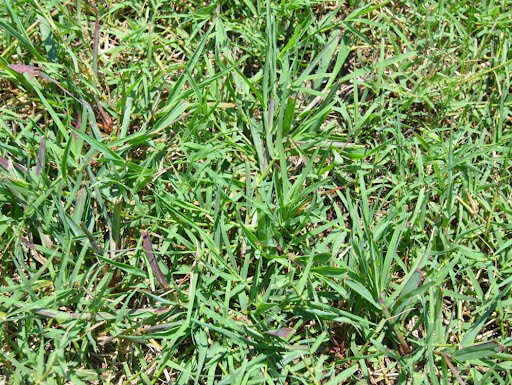
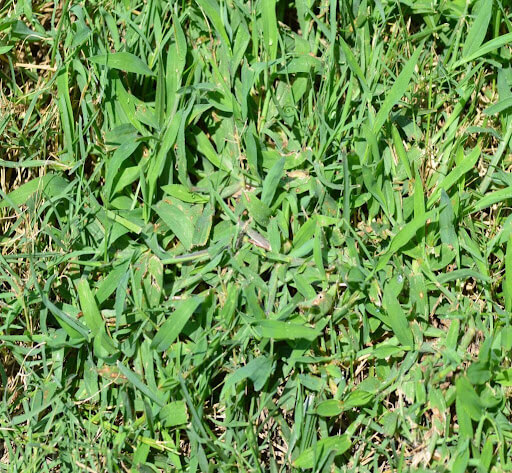
Fairway Green starts our first application of pre-emergent crabgrass control for cool-season lawns this month. This will continue on through early March, as crabgrass will usually start to germinate in late March or early April throughout most of NC. This is due to a majority of us being in the transitional zone (an area where temperatures don’t entirely favor warm-season or cool-season grasses).
Germination will occur when soil is about 53 degrees at 2-to-4 inches deep. It will first show on bare spots with little desirable turf and in full sun.
The first control application must be completed before this for best results.
Fairway Green utilizes a three-part, pre-emergent application process to offer the best summer crabgrass control possible. This application starts to break down around mid-July so seeding can start around the end of August. Early crabgrass breakthrough, after pre-emergent applications, can be attributed to low mowing heights, thin lawn areas and aggressive edging along sidewalks and driveways. This is all based on local research from Dr. Fred Yelverton of NC State University’s TurfFiles.
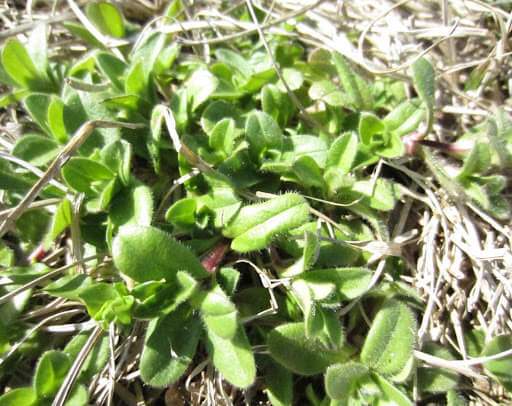

As their name suggests, winter weeds can be prolific these next few months. Since they germinated in the fall, the best time to start dealing with them is now—before they’re done growing in late winter, start to reproduce in spring and become even more difficult to control. You’ll know they’ve become difficult to control once they start to flower.
Weed control can be difficult in spring due to many cool-season lawns being thin and not completely tillered (having additional leaf blades that help against broadleaf weeds). Research has shown that maintaining a mowing height of 3½” – 4” will help promote healthy turf and control broadleaf weeds, as well as reduce crabgrass.

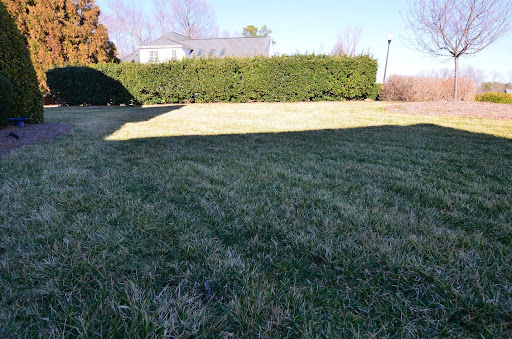
Is your fescue lawn looking a little tan or yellow? As is common in winter months, it may be experiencing extreme dryness—or desiccation—in its leaf tissues.
Frost damage, when the moisture in the grass blades freezes and ruptures the cells at the tip of the blades, can be a major factor in this. This can cause the tips of the blade to turn yellow or brown, giving the lawn a yellowish color. However, as spring arrives and temperatures become more favorable for fescue growth, this will grow out. Alongside one of our early spring applications, your grass will recover and flourish.
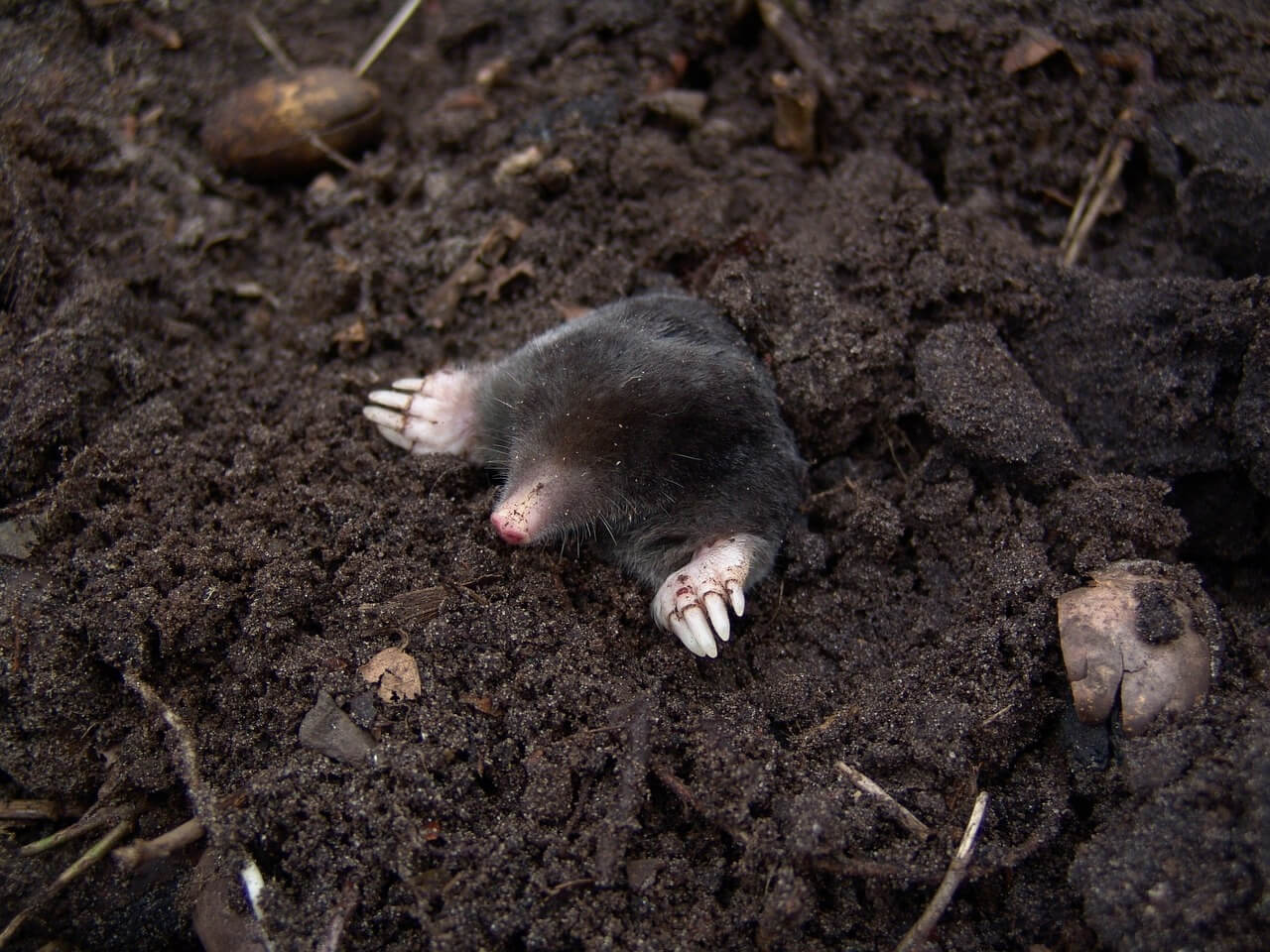
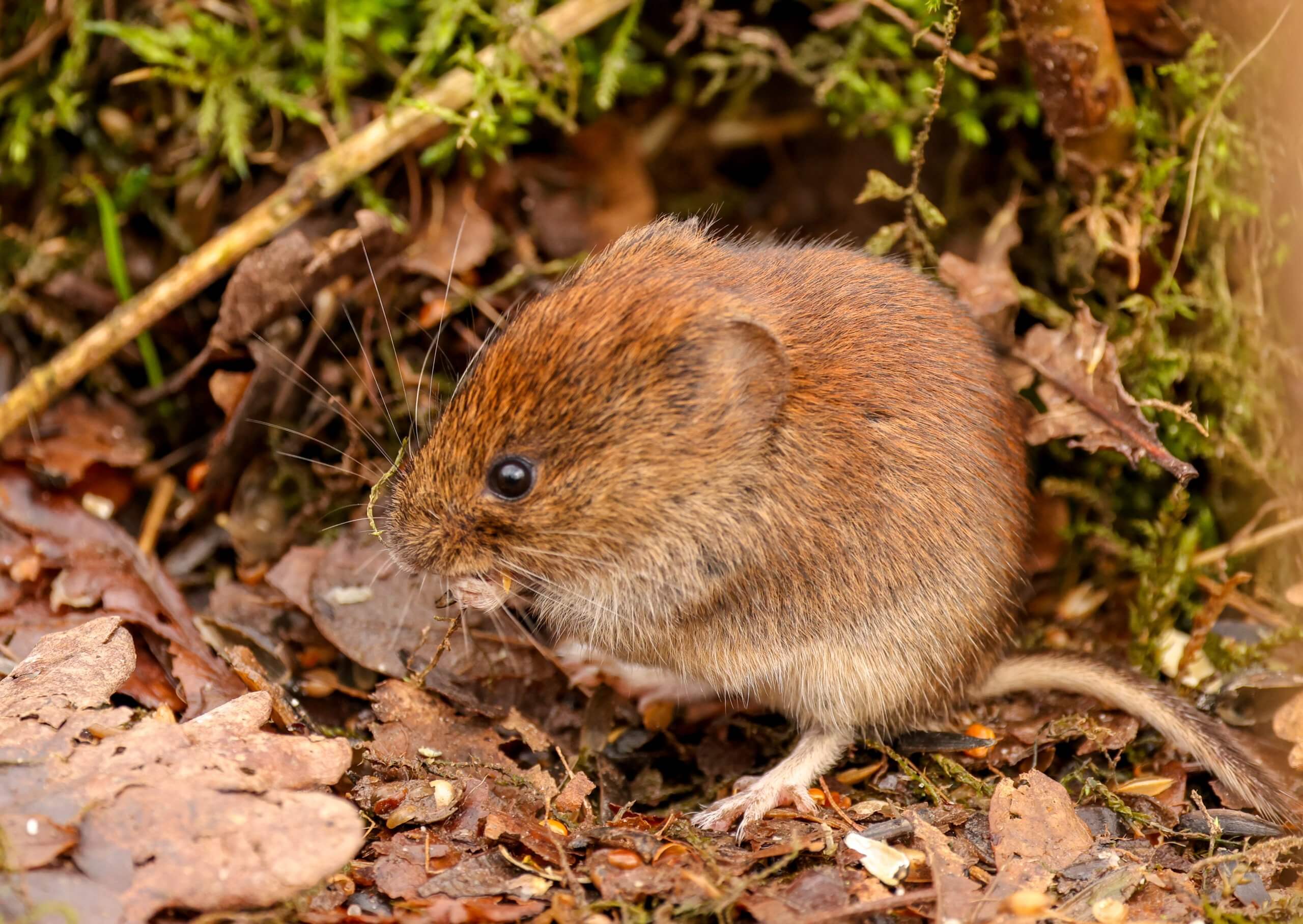
While we do not offer mole or vole control services at this time, we thought it important to pass along some info.
Mole and vole signs tend to increase this time of year because our soil has better moisture, making it easier for them to move around. It makes sense: just think about how easy it is to dig a hole on your property now compared to July and August.
Controlling either can be frustrating and time consuming, and many people believe that a grub treatment can help. However, this is usually ineffective because they feed heavily on earthworms and other insects too.
There are now several chemical options registered for use in North Carolina to control them. Two particular products that people have had success with are “Tomcat Mole Killer” and “Motomoco Mole Killer.” These products are available in home and garden centers in Home Depot and Lowes (but please patron local hardware or nursery stores if possible). A very good website for additional information on moles and voles is The Mole Man.